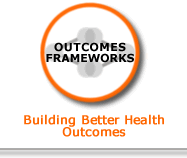|
Community trust
High levels of community trust have been associated with reduced psychological distress, although the research evidence is mixed and under-developed. There is some limited evidence of an association between trust in others, higher life satisfaction, happiness and lower probability of suicide. According to Dolan, trust in public institutions was also found to be associated with higher levels of life satisfaction.[1]
Social support and social networks
Social support, in particular perceived social support, correlates strongly with measures of mental health. A lack of social support is associated with depression and other mental health problems and decreased likelihood of recovery from mental health problems.[1] Social support in general is protective against suicide amongst a range of population groups including black Americans and women who have experienced abuse.[2]
Social networks can act as a protective factor for the onset and recurrence of mental health problems and may affect the course of an episode of mental illness. There is some evidence from that quantity and perceived quality of social networks are predictive of recovery1. There is also evidence from Dolan [3] that better social networks are associated with life satisfaction and happiness.1
Relationships
Relationships: Positive attachment and early bonding, positive parent-child interactions and good parenting are all identified by the World Health Organization as protective factors for good mental health.[4]
There is non-systematic review level evidence that good family relationships with parents mitigate against suicide risk, especially in adolescents and including those who have been sexually abused. Positive family relationships also provide a protective effect for adolescents including those with learning disabilities. Further evidence suggests that positive maternal coping strategies can have a protective effect on female adolescents.[2]
There is non-systematic review level evidence that marriage is a protective factor against suicide and that marriage has a protective buffering effect against socio-economic inequalities related to suicide, particularly for men.[2]
Source
-
Parkinson J (2007). Establishing a core set of national, sustainable mental health indicators for adults in Scotland: Final report. NHS Health Scotland: Glasgow.
-
McLean H, Maxwell M, Platt S, Harris F & Jepson R (2008). Risk and Protective Factors for suicide and suicidal behaviour: A literature review. Scottish Government Social Research, Edinburgh.
-
.Dolan, P., Peasgood, T. & White, M. (2006). Review of research on the influence on personal well-being and application to police making. Defra: London.
-
WHO (2004). Prevention of mental disorders: effective interventions and policy options: summary report. A report of the World Health Organization Dept. of Mental Health and Substance Abuse; in collaboration with the Prevention Research Centre of the Universities of Nijmegen and Maastricht. WHO: Geneva.
|



